Fleurs du Mal Magazine


Or see the index
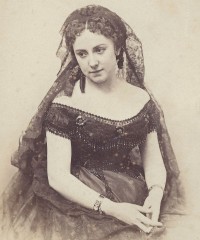
Dreams of Beauty
Visions of Beauty, of Light, and of Love,
Born in the soul of a Dream,
Lost, like the phantom-bird under the dove,
When she flies over a stream—
Come ye through portals where angel wings droop,
Moved by the heaven of sleep?
Or, are ye mockeries, crazing a soul,
Doomed with its waking to weep?
I could believe ye were shadows of earth,
Echoes of hopes that are vain,
But for the music ye bring to my heart,
Waking its sunshine again.
And ye are fleeting. All vainly I strive
Beauties like thine to portray;
Forth from my pencil the bright picture starts,
And—ye have faded away.
Like to a bird that soars up from the spray,
When we would fetter its wing;
Like to the song that spurns Memory’s grasp
When the voice yearneth to sing;
Like the cloud-glory that sunset lights up,
When the storm bursts from its height;
Like the sheet-silver that rolls on the sea,
When it is touched by the night—
Bright, evanescent, ye come and are gone,
Visions of mystical birth;
Art that could paint you was never vouchsafed
Unto the children of earth.
Yet in my soul there’s a longing to tell
All you have seemed unto me,
That unto others a glimpse of the skies
You in their sorrow might be.
Vain is the wish. Better hope to describe
All that the spirit desires,
When through a cloud of vague fancies and schemes
Flash the Promethean fires.
Let me then think of ye, Visions of Light,
Not as the tissue of dreams.
But as realities destined to be
Bright in Futurity’s beams.
Ideas formed by a standard of earth
Sink at Reality’s shrine
Into the human and weak like ourselves,
Losing the essence divine;
But the fair pictures that fall from above
On the heart’s mirror sublime
Carry a signature written in tints,
Bright with the future of time,
And the heart, catching them, yieldeth a spark
Under each stroke of the rod—
Sparks that fly upward and light the New Life,
Burning an incense to God!
Adah Isaacs Menken
(1835 – 1868)
Dreams of Beauty
•fleursdumal.nl magazine
More in: - Archive Tombeau de la jeunesse, Archive M-N, Archive M-N, Menken, Adah, THEATRE
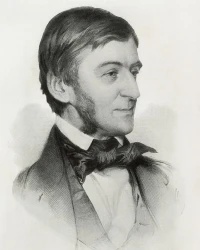
The Past
The debt is paid,
The verdict said,
The Furies laid,
The plague is stayed,
All fortunes made;
Turn the key and bolt the door,
Sweet is death forevermore.
Nor haughty hope, nor swart chagrin,
Nor murdering hate, can enter in.
All is now secure and fast;
Not the gods can shake the Past;
Flies-to the adamantine door
Bolted down forevermore.
None can re-enter there,—
No thief so politic,
No Satan with a royal trick
Steal in by window, chink, or hole,
To bind or unbind, add what lacked,
Insert a leaf, or forge a name,
New-face or finish what is packed,
Alter or mend eternal Fact.
Ralph Waldo Emerson
(1803 – 1882)
The Past
•fleursdumal.nl magazine
More in: Archive E-F, Archive E-F, Emerson, Ralph Waldo
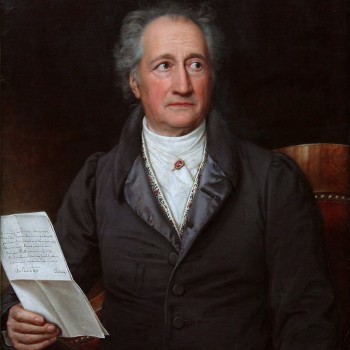
Totentanz
Der Türmer, der schaut zu Mitten der Nacht
Hinab auf die Gräber in Lage;
Der Mond, der hat alles ins Helle gebracht;
Der Kirchhof, er liegt wie am Tage.
Da regt sich ein Grab und ein anderes dann:
Sie kommen hervor, ein Weib da, ein Mann,
In weißen und schleppenden Hemden.
Das reckt nun, es will sich ergetzen sogleich,
Die Knöchel zur Runde, zum Kranze,
So arm und so jung, und so alt und so reich;
Doch hindern die Schleppen am Tanze.
Und weil hier die Scham nun nicht weiter gebeut,
Sie schütteln sich alle, da liegen zerstreut
Die Hemdlein über den Hügeln.
Nun hebt sich der Schenkel, nun wackelt das Bein,
Gebärden da gibt es vertrackte;
Dann klippert’s und klappert’s mitunter hinein,
Als schlüg’ man die Hölzlein zum Takte.
Das kommt nun dem Türmer so lächerlich vor;
Da raunt ihm der Schalk, der Versucher, ins Ohr:
Geh! hole dir einen der Laken.
Getan wie gedacht! und er flüchtet sich schnell
Nun hinter geheiligte Türen.
Der Mond, und noch immer er scheinet so hell
Zum Tanz, den sie schauderlich führen.
Doch endlich verlieret sich dieser und der,
Schleicht eins nach dem andern gekleidet einher,
Und, husch, ist es unter dem Rasen.
Nur einer, der trippelt und stolpert zuletzt
Und tappet und grapst an den Grüften;
Doch hat kein Geselle so schwer ihn verletzt,
Er wittert das Tuch in den Lüften.
Er rüttelt die Turmtür, sie schlägt ihn zurück,
Geziert und gesegnet, dem Türmer zum Glück,
Sie blinkt von metallenen Kreuzen.
Das Hemd muß er haben, da rastet er nicht,
Da gilt auch kein langes Besinnen,
Den gotischen Zierat ergreift nun der Wicht
Und klettert von Zinne zu Zinnen.
Nun ist’s um den armen, den Türmer getan!
Es ruckt sich von Schnörkel zu Schnörkel hinan,
Langbeinigen Spinnen vergleichbar.
Der Türmer erbleichet, der Türmer erbebt,
Gern gäb er ihn wieder, den Laken.
Da häkelt – jetzt hat er am längsten gelebt –
Den Zipfel ein eiserner Zacken.
Schon trübet der Mond sich verschwindenden Scheins,
Die Glocke, sie donnert ein mächtiges Eins,
Und unten zerschellt das Gerippe.
Johann Wolfgang von Goethe
(1749-1832)
Totentanz
•fleursdumal.nl magazine
More in: Archive G-H, Archive G-H, Goethe, Johann Wolfgang von, J.W. von Goethe
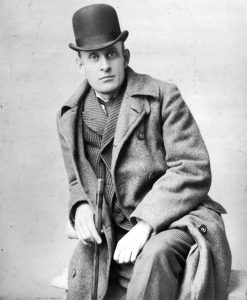
Wynken, Blynken, and Nod
Wynken, Blynken, and Nod one night
Sailed off in a wooden shoe,—
Sailed on a river of crystal light
Into a sea of dew.
“Where are you going, and what do you wish?”
The old moon asked the three.
“We have come to fish for the herring-fish
That live in this beautiful sea;
Nets of silver and gold have we,”
Said Wynken,
Blynken,
And Nod.
The old moon laughed and sang a song,
As they rocked in the wooden shoe;
And the wind that sped them all night long
Ruffled the waves of dew;
The little stars were the herring-fish
That lived in the beautiful sea.
“Now cast your nets wherever you wish,—
Never afraid are we!”
So cried the stars to the fishermen three,
Wynken,
Blynken,
And Nod.
All night long their nets they threw
To the stars in the twinkling foam,—
Then down from the skies came the wooden shoe,
Bringing the fishermen home:
‘Twas all so pretty a sail, it seemed
As if it could not be;
And some folk thought ’twas a dream they’d dreamed
Of sailing that beautiful sea;
But I shall name you the fishermen three:
Wynken,
Blynken,
And Nod.
Wynken and Blynken are two little eyes,
And Nod is a little head,
And the wooden shoe that sailed the skies
Is a wee one’s trundle-bed;
So shut your eyes while Mother sings
Of wonderful sights that be,
And you shall see the beautiful things
As you rock in the misty sea
Where the old shoe rocked the fishermen three:—
Wynken,
Blynken,
And Nod.
Eugene Field
(1850 – 1895)
Wynken, Blynken, and Nod
• fleursdumal.nl magazine
More in: Archive E-F, Archive E-F, Field, Eugene
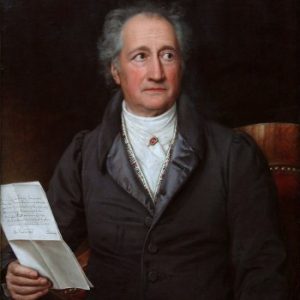
Neue Liebe, neues Leben
Herz, mein Herz, was soll das geben?
Was bedränget dich so sehr?
Welch ein fremdes, neues Leben !
Ich erkenne dich nicht mehr.
Weg ist alles was du liebtest,
Weg, warum du dich betrübtest,
Weg dein Fleiß und deine Ruh –
Ach, wie kamst du nur dazu !
Fesselt dich die Jugendblüte,
Diese liebliche Gestalt,
Dieser Blick voll Treu und Güte
Mit unendlicher Gewalt?
Will ich rasch mich ihr entziehen,
Mich ermannen, ihr entfliehen,
Führet mich im Augenblick,
Ach, mein Weg zu ihr zurück.
Und an diesem Zauberfädchen,
Das sich nicht zerreißen lässt,
Hält das liebe lose Mädchen
Mich so wider Willen fest;
Muss in ihrem Zauberkreise
Leben nun auf ihre Weise.
Die Veränderung, ach, wie groß!
Liebe! Liebe! Laß mich los!
Johann Wolfgang von Goethe
(1749-1832)
Neue Liebe, neues Leben
•fleursdumal.nl magazine
More in: Archive G-H, Archive G-H, Goethe, Johann Wolfgang von, J.W. von Goethe
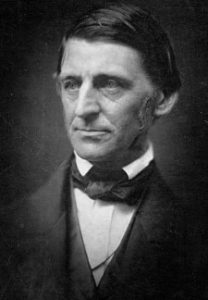
The Apology
Think me not unkind and rude,
That I walk alone in grove and glen;
I go to the god of the wood
To fetch his word to men.
Tax not my sloth that I
Fold my arms beside the brook;
Each cloud that floated in the sky
Writes a letter in my book.
Chide me not, laborious band,
For the idle flowers I brought;
Every aster in my hand
Goes home loaded with a thought.
There was never mystery,
But ’tis figured in the flowers,
Was never secret history,
But birds tell it in the bowers.
One harvest from thy field
Homeward brought the oxen strong;
A second crop thine acres yield,
Which I gather in a song.
Ralph Waldo Emerson
(1803 – 1882)
The Apology
•fleursdumal.nl magazine
More in: Archive E-F, Archive E-F, Emerson, Ralph Waldo, MONTAIGNE
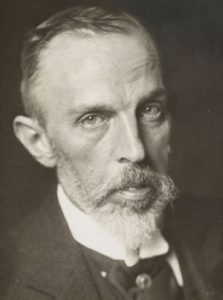
Gij deed van alle mensen
Gij deed van alle mensen mij
De zwaarste pijn,
Van alle mensen zult ge mij
De liefste zijn.
J.H. Leopold
(1865-1925)
Gij deed van alle mensen
Vroege gedichten
• fleursdumal.nl magazine
More in: Archive K-L, Archive K-L, Leopold, J.H.

Ode To Beauty
Who gave thee, O Beauty!
The keys of this breast,
Too credulous lover
Of blest and unblest?
Say when in lapsed ages
Thee knew I of old;
Or what was the service
For which I was sold?
When first my eyes saw thee,
I found me thy thrall,
By magical drawings,
Sweet tyrant of all!
I drank at thy fountain
False waters of thirst;
Thou intimate stranger,
Thou latest and first!
Thy dangerous glances
Make women of men;
New-born we are melting
Into nature again.
Lavish, lavish promiser,
Nigh persuading gods to err,
Guest of million painted forms
Which in turn thy glory warms,
The frailest leaf, the mossy bark,
The acorn’s cup, the raindrop’s arc,
The swinging spider’s silver line,
The ruby of the drop of wine,
The shining pebble of the pond,
Thou inscribest with a bond
In thy momentary play
Would bankrupt Nature to repay.
Ah! what avails it
To hide or to shun
Whom the Infinite One
Hath granted his throne?
The heaven high over
Is the deep’s lover,
The sun and sea
Informed by thee,
Before me run,
And draw me on,
Yet fly me still,
As Fate refuses
To me the heart Fate for me chooses,
Is it that my opulent soul
Was mingled from the generous whole,
Sea valleys and the deep of skies
Furnished several supplies,
And the sands whereof I’m made
Draw me to them self-betrayed?
I turn the proud portfolios
Which hold the grand designs
Of Salvator, of Guercino,
And Piranesi’s lines.
I hear the lofty Pæans
Of the masters of the shell,
Who heard the starry music,
And recount the numbers well:
Olympian bards who sung
Divine Ideas below,
Which always find us young,
And always keep us so.
Oft in streets or humblest places
I detect far wandered graces,
Which from Eden wide astray
In lowly homes have lost their way.
Thee gliding through the sea of form,
Like the lightning through the storm,
Somewhat not to be possessed,
Somewhat not to be caressed,
No feet so fleet could ever find,
No perfect form could ever bind.
Thou eternal fugitive
Hovering over all that live,
Quick and skilful to inspire
Sweet extravagant desire,
Starry space and lily bell
Filling with thy roseate smell,
Wilt not give the lips to taste
Of the nectar which thou hast.
All that’s good and great with thee
Stands in deep conspiracy.
Thou hast bribed the dark and lonely
To report thy features only,
And the cold and purple morning
Itself with thoughts of thee adorning,
The leafy dell, the city mart,
Equal trophies of thine art,
E’en the flowing azure air
Thou hast touched for my despair,
And if I languish into dreams,
Again I meet the ardent beams.
Queen of things! I dare not die
In Being’s deeps past ear and eye,
Lest there I find the same deceiver,
And be the sport of Fate forever.
Dread power, but dear! if God thou be,
Unmake me quite, or give thyself to me.
Ralph Waldo Emerson
(1803 – 1882)
Ode To Beauty
•fleursdumal.nl magazine
More in: Archive E-F, Archive E-F, Emerson, Ralph Waldo

The Snow-Storm
Announced by all the trumpets of the sky,
Arrives the snow, and, driving o’er the fields,
Seems nowhere to alight: the whited air
Hides hills and woods, the river, and the heaven,
And veils the farm-house at the garden’s end.
The sled and traveller stopped, the courier’s feet
Delayed, all friends shut out, the housemates sit
Around the radiant fireplace, enclosed
In a tumultuous privacy of storm.
Come see the north wind’s masonry.
Out of an unseen quarry evermore
Furnished with tile, the fierce artificer
Curves his white bastions with projected roof
Round every windward stake, or tree, or door.
Speeding, the myriad-handed, his wild work
So fanciful, so savage, nought cares he
For number or proportion. Mockingly,
On coop or kennel he hangs Parian wreaths;
A swan-like form invests the hidden thorn;
Fills up the farmer’s lane from wall to wall,
Maugre the farmer’s sighs; and, at the gate,
A tapering turret overtops the work.
And when his hours are numbered, and the world
Is all his own, retiring, as he were not,
Leaves, when the sun appears, astonished Art
To mimic in slow structures, stone by stone,
Built in an age, the mad wind’s night-work,
The frolic architecture of the snow.
Ralph Waldo Emerson
(1803 – 1882)
The Snow-Storm
•fleursdumal.nl magazine
More in: 4SEASONS#Winter, Archive E-F, Archive E-F, Emerson, Ralph Waldo
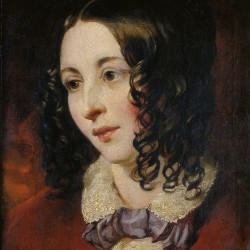
Song for the New Year
Old Time has turned another page
Of eternity and truth;
He reads with a warning voice to age,
And whispers a lesson to youth.
A year has fled o’er heart and head
Since last the yule log burnt;
And we have a task to closely ask,
What the bosom and brain have learnt?
Oh! let us hope that our sands have run
With wisdom’s precious grains;
Oh! may we find that our hands have done
Some work of glorious pains.
Then a welcome and cheer to the merry new year,
While the holly gleams above us;
With a pardon for the foes who hate,
And a prayer for those who love us.
We may have seen some loved ones pass
To the land of hallow’d rest;
We may miss the glow of an honest brow
And the warmth of a friendly breast:
But if we nursed them while on earth,
With hearts all true and kind,
Will their spirits blame the sinless mirth
Of those true hearts left behind?
No, no! it were not well or wise
To mourn with endless pain;
There’s a better world beyond the skies,
Where the good shall meet again.
Then a welcome and cheer to the merry new year,
While the holly gleams above us;
With a pardon for the foes who hate,
And a prayer for those who love us.
Have our days rolled on serenely free
From sorrow’s dim alloy?
Do we still possess the gifts that bless
And fill our souls with joy?
Are the creatures dear still clinging near?
Do we hear loved voices come?
Do we gaze on eyes whose glances shed
A halo round our home?
Oh, if we do, let thanks be pour’d
To Him who hath spared and given,
And forget not o’er the festive board
The mercies held from heaven.
Then a welcome and cheer to the merry new year,
While the holly gleams above us;
With a pardon for the foes who hate,
And a prayer for those who love us.
Eliza Cook
(1818 – 1889)
Song for the New Year
•fleursdumal.nl magazine
January 01, 2025
More in: # Classic Poetry Archive, Archive C-D, Archive C-D
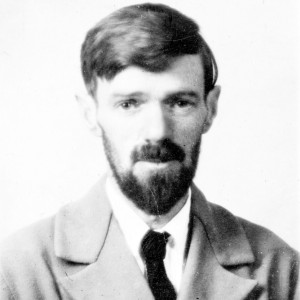
New Year’s Eve
There are only two things now,
The great black night scooped out
And this fire-glow.
This fire-glow, the core,
And we the two ripe pips
That are held in store.
Listen, the darkness rings
As it circulates round our fire.
Take off your things.
Your shoulders, your bruised throat!
Your breasts, your nakedness!
This fiery coat!
As the darkness flickers and dips,
As the fireflight falls and leaps
From your feet to your lips!
D. H. Lawrence
(1885 – 1930)
New Year’s Eve
•fleursdumal.nl magazine
December 31, 2024
More in: 4SEASONS#Winter, Archive K-L, Archive K-L, D.H. Lawrence, Lawrence, D.H.
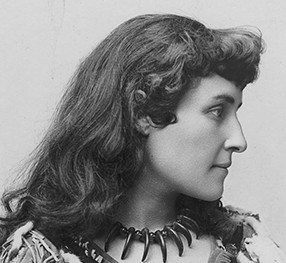
A Cry from an Indian Wife
My Forest Brave, my Red-skin love, farewell;
We may not meet to-morrow; who can tell
What mighty ills befall our little band,
Or what you’ll suffer from the white man’s hand?
Here is your knife! I thought ’twas sheathed for aye.
No roaming bison calls for it to-day;
No hide of prairie cattle will it maim;
The plains are bare, it seeks a nobler game:
’Twill drink the life-blood of a soldier host.
Go; rise and strike, no matter what the cost.
Yet stay. Revolt not at the Union Jack,
Nor raise Thy hand against this stripling pack
Of white-faced warriors, marching West to quell
Our fallen tribe that rises to rebel.
They all are young and beautiful and good;
Curse to the war that drinks their harmless blood.
Curse to the fate that brought them from the East
To be our chiefs—to make our nation least
That breathes the air of this vast continent.
Still their new rule and council is well meant.
They but forget we Indians owned the land
From ocean unto ocean; that they stand
Upon a soil that centuries agone
Was our sole kingdom and our right alone.
They never think how they would feel to-day,
If some great nation came from far away,
Wresting their country from their hapless braves,
Giving what they gave us—but wars and graves.
Then go and strike for liberty and life,
And bring back honour to your Indian wife.
Your wife? Ah, what of that, who cares for me?
Who pities my poor love and agony?
What white-robed priest prays for your safety here,
As prayer is said for every volunteer
That swells the ranks that Canada sends out?
Who prays for vict’ry for the Indian scout?
Who prays for our poor nation lying low?
None—therefore take your tomahawk and go.
My heart may break and burn into its core,
But I am strong to bid you go to war.
Yet stay, my heart is not the only one
That grieves the loss of husband and of son;
Think of the mothers o’er the inland seas;
Think of the pale-faced maiden on her knees;
One pleads her God to guard some sweet-faced child
That marches on toward the North-West wild.
The other prays to shield her love from harm,
To strengthen his young, proud uplifted arm.
Ah, how her white face quivers thus to think,
Your tomahawk his life’s best blood will drink.
She never thinks of my wild aching breast,
Nor prays for your dark face and eagle crest
Endangered by a thousand rifle balls,
My heart the target if my warrior falls.
O! coward self I hesitate no more;
Go forth, and win the glories of the war.
Go forth, nor bend to greed of white men’s hands,
By right, by birth we Indians own these lands,
Though starved, crushed, plundered, lies our nation low . . .
Perhaps the white man’s God has willed it so.
Emily Pauline Johnson
(1861 – 1913)
A Cry from an Indian Wife
Poem
• fleursdumal.nl magazine
More in: # Classic Poetry Archive, *Archive Native American Literature, Archive I-J, Archive I-J, Emily Pauline Johnson, Racism
Thank you for reading Fleurs du Mal - magazine for art & literature